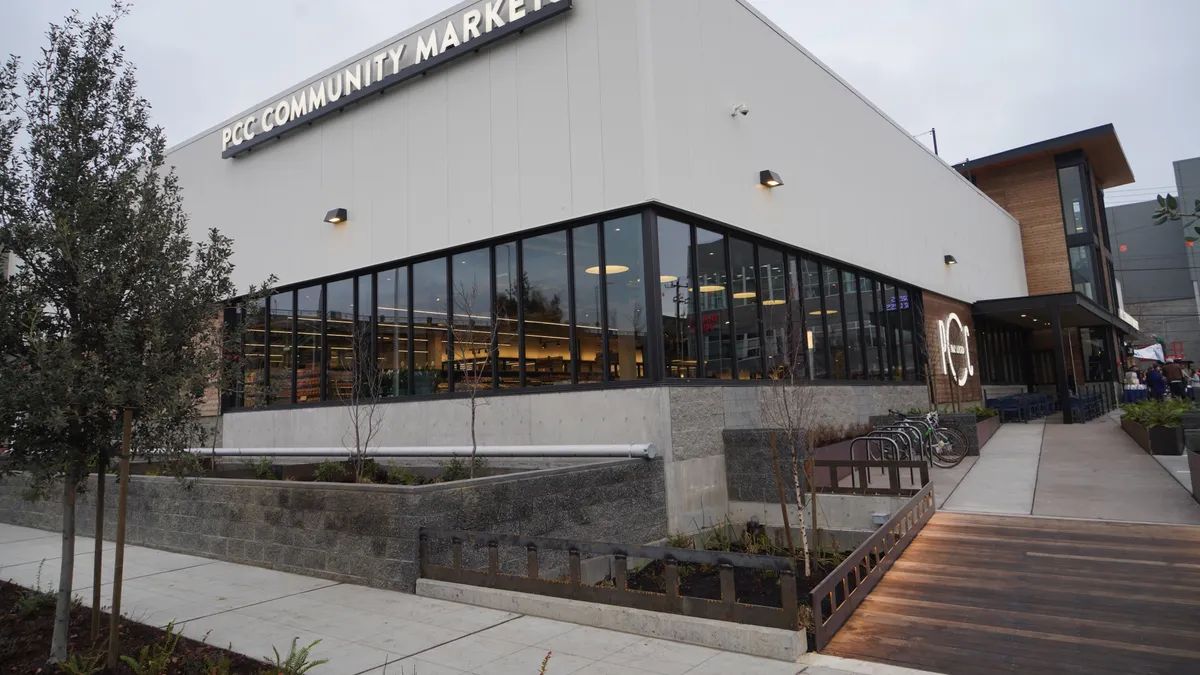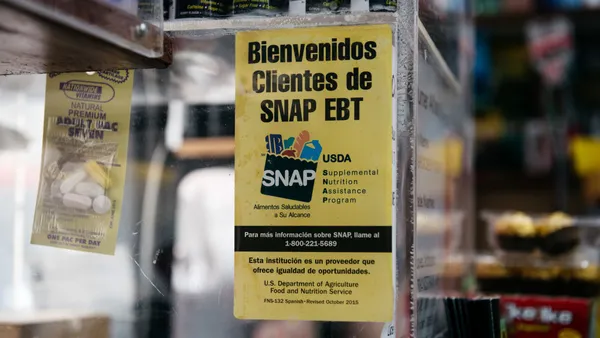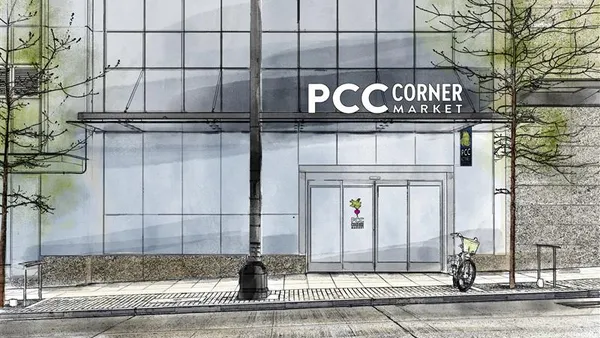Dive Brief:
- PCC Community Markets has offered to provide all of its unionized workers with temporary pandemic-related pay of $4 per hour, not just those in stores covered by Seattle’s just-enacted hazard pay ordinance, according to a statement issued Thursday by the northwest Washington grocery cooperative.
- The offer comes a day after the Northwest Grocery Association and the Washington Food Industry Association sued the city of Seattle in an attempt to invalidate the $4 hazard pay ordinance the city implemented on Wednesday over PCC’s objections. The California Grocers Association has also taken legal action against cities in that state that have implemented mandatory pay raises.
- The proposal by PCC reflects the tricky balance grocers are trying to strike between preserving their bottom lines and maintaining good relations with their customers and associates as pressure over pay raises intensifies.
Dive Insight:
PCC's latest move echoes Trader Joe's decision earlier this week to extend a mandated pay raise to all of its stores as concerns over fair pay, worker relations and consumer sentiment influence retailers' strategies to fight the wage increases.
In a proposal to Local 21 of the United Food and Commercial Workers (UFCW) International Union, PCC said it is willing to provide $4 per hour in “temporary appreciation pay” to all workers across its 15-store fleet, which includes locations in areas that fall beyond Seattle’s jurisdiction. PCC said it wanted unspecified “non-economic concessions” in exchange for the chainwide pay hike.
PCC’s effort to reach a deal with the UFCW follows the co-op’s unsuccessful effort to convince Seattle Mayor Jenny Durkan not to sign the city’s hazard pay bill. As of Thursday, the co-op and the union had not come to an agreement regarding the proposal, PCC said.
In their lawsuit against Seattle over the city’s ordinance, the Northwest Grocery Association and the Washington Food Industry Association claim officials erred by crafting an ordinance that mandates extra pay for some frontline workers while excluding others.
In a statement, the groups said the law, which requires grocers to pay frontline employees an extra $4 per hour to compensate them for working during the pandemic, is unconstitutional because it does not also apply to other essential workers, such as those who work in restaurants, meat-processing facilities, school and hospitals.
The suit also alleges that the ordinance represents an improper effort by the Seattle City Council to insert itself into the collective bargaining process outlined by the National Labor Relations Act.
The arguments in the lawsuit echo claims at the heart of a suit filed Wednesday by the California Grocers Association against the city of Oakland, California, which on Tuesday passed and immediately implemented a law that requires grocers to pay workers $5 in hourly hazard pay.
The California Grocers Association also lodged a legal challenge against Montebello, California, over its hazard pay ordinance this week, Los Angeles TV station KCAL reported. In January, the association sued Long Beach, California, in a bid to overturn that city’s hazard pay measure, Fox 11 Los Angeles reported.
In announcing their lawsuit against Seattle, the Washington grocery associations also called out the city for prioritizing extra pay for grocery workers even though COVID-19 vaccines are in short supply. People who work in grocery stores fall into phase 1B, tier 2 of the state of Washington’s vaccination plan, which is not scheduled to begin until spring or summer.
Given that grocery stores have remained open throughout the pandemic despite the health risks to their workers and invested in online grocery services, the city should focus on ensuring that grocery workers get immunized against the disease, Amanda Dalton, president of the Northwest Grocery Association, said in a statement.
“Our city leaders should be focused on making our community safe and healthy again,” said Dalton. “We already provide best-in-industry compensation packages every day and provided expanded compensation packages as a result of the pandemic. Now, the best way to reward our heroes is to get them vaccinated and to let us help vaccinate our communities.”
When it publicized its pay offer to the UFCW on Thursday, PCC said it is asking state and local government officials to give priority to grocery workers when allocating vaccine supplies.













